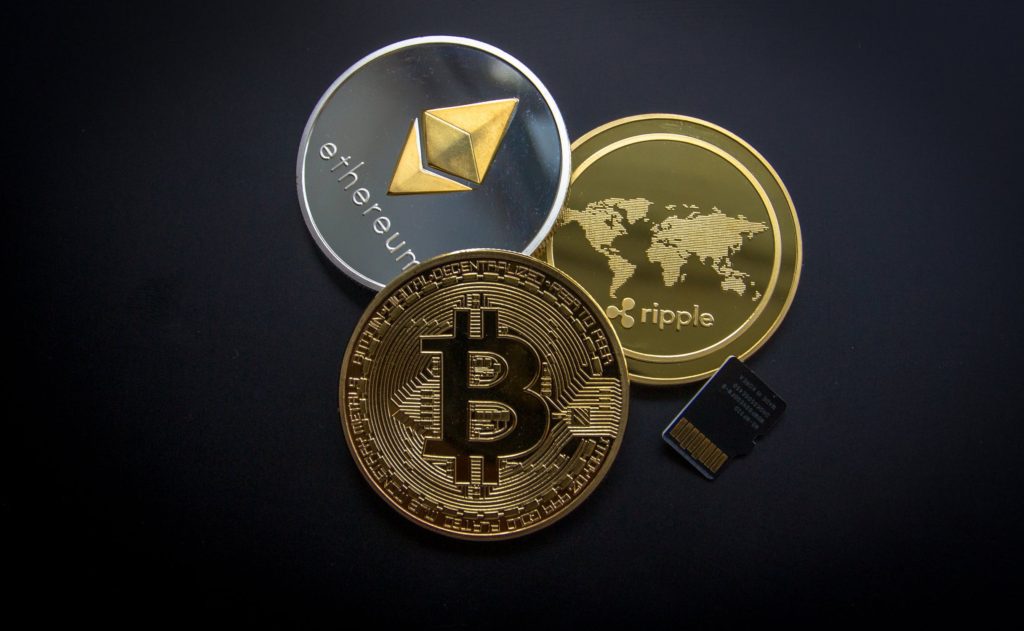This year, the cryptocurrency industry has reached an all-time high in popularity, leading people to wonder what exactly the industry entails. Cryptocurrency is a digital flat currency that can be used to buy goods and services. The industry continues to grow as people begin to explore the future of it and begin their own investments and trades.
The big difference between cryptocurrency and the money that we have sitting in our banks is how each one is recorded, explains Dr. David Campbell, associate professor of economics. Checking accounts which are secured and maintained by banks are private.
“Transactions and balances involving cryptocurrency, by contrast, are recorded using a publicly available ledger (or list) of transactions,” said Campbell.
This means all transactions that are recorded and available are public for everyone to see. This is made possible by the blockchain, which Campbell argues is the most exciting aspect of cryptocurrency.
“Also, all wallet balances (this is the crypto version of a bank account) are publicly available, though who they belong to is not,” said Campbell. “This blockchain is maintained and verified by many different computers around the world.”
One of the drawbacks concerning this, however, is the fear of fraudulent transactions. However, cryptocurrencies have a process called mining which attempts to catch transactions that appear fake.
“It’s a process by which the software takes the most recent transactions and turns them into a complicated computer program,” said Campbell. “Computers then race to solve the program. If a majority agree on the answer, then the bundle of transactions are considered verified and added as a block to the chain.”
To learn more about the subject, Campbell built a crypto miner in his office. Not only does this help him understand crypto a little better but also allows him to have a strong enough understanding to help teach his students.
“It’s just a demonstration model that I use to explain cryptocurrency to students who are interested,” said Campbell. “I even take it to classes to explain the process and actually mine crypto right in the classroom.”
Campbell also has another, higher powered miner at home, that he hopes will recoup his investment in it.
Although the purpose of cryptocurrency isn’t definite, Campbell suspects that distrust of the government is one reason for its creation. The U.S. government spending more money than it should is an issue by itself. This is done by centralized banks creating money and therefore, buying government debt. When this happens, inflation occurs.
“The desire to have a money supply that does not lose its value through government sponsored profligacy is one of the big motivations in holding cryptocurrency,” said Campbell.
The interest for users lies in the blockchain technology which carries the most significant long-term value. According to Campbell, venture capital firms are pouring their money into businesses who use the blockchain.
“From NFTs to decentralized finance, the potential applications from these blockchains are just now being explored,” said Campbell.
However, a major concern with the emerging crypto industry is the amount of energy consumed through mining. The mining process requires a lot of power, which some argue is not worth it.
“One estimate had the power consumed mining Bitcoin this year exceeding the power consumed by the country of Sweden,” said Campbell.
Another disadvantage is the lack of regulations. The industry is not backed by a central bank or federal reserve which limits supervision.
Recently, a bill passed Congress that implements a tax on Bitcoin users who have more than $10,000 in transactions. Bitcoin is a decentralized digital currency.
Jackson Gabriel, a sophomore at Milligan, invests in Dogecoin, Bitcoin and Ether, all digital currencies.
“I hate for the IRS to become involved in crypto as I think it’ll be a serious drawback,” said Gabriel. “It will probably deter many people from beginning to invest and/or continue to.”
Gabriel said he’s still learning the various aspects and techniques of crypto.
“We can hope that the future is still bright for cryptocurrency,” said Gabriel. “My next step in the learning curve is to start mining crypto, I’m also interested in NFTs.”

